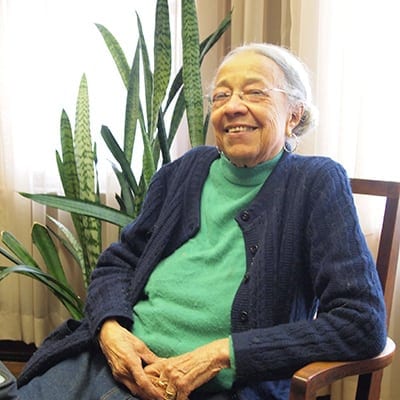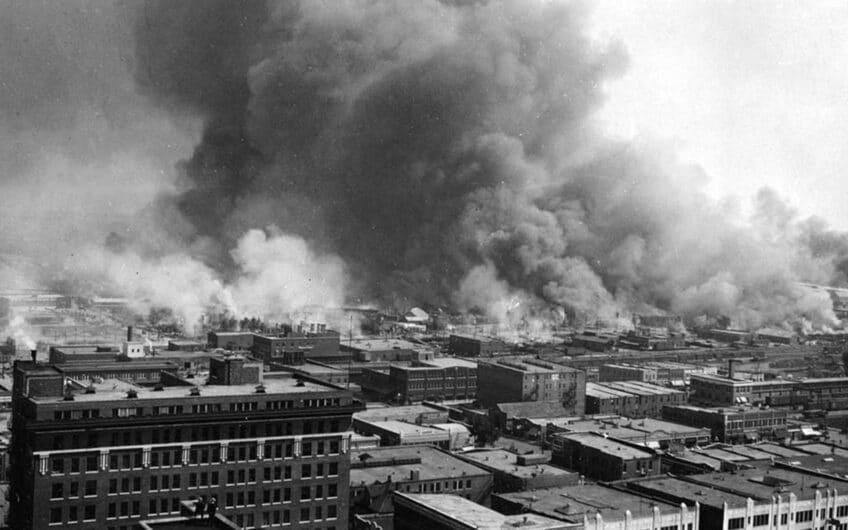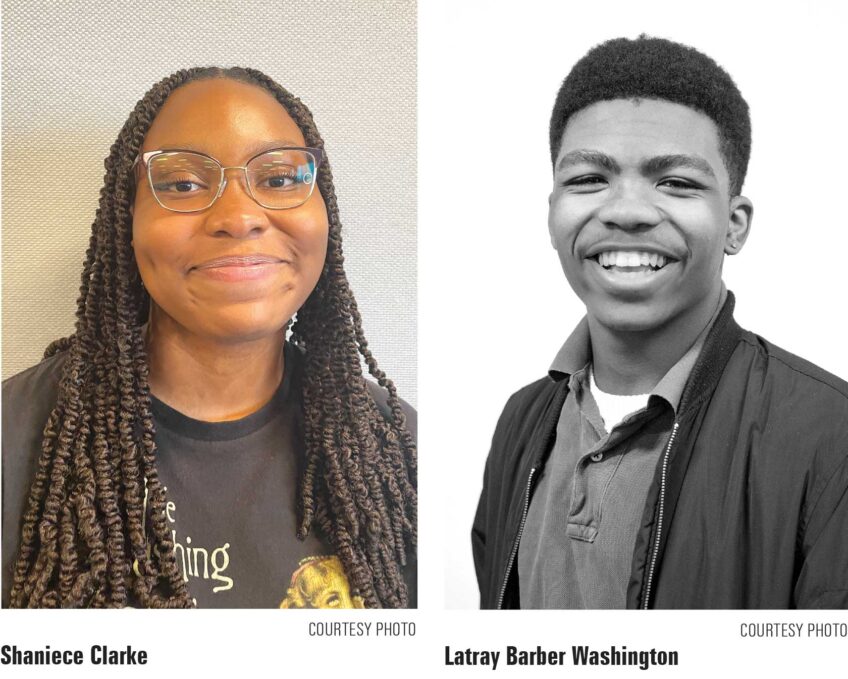
When Adelaide Cromwell arrived in Boston in the 1940s, the history of the city’s African American community was all but forgotten, with the stories of prominent 19th century blacks gathering dust in out-of-print books and century-old newspapers.
The African Meeting House on Beacon Hill was an abandoned building, with a faded Grand Army of the Republic sign still affixed to its door.
“There was no indication that blacks had built it or lived in that neighborhood,” Cromwell said.
A sociologist with degrees from Smith College, University of Pennsylvania and Radcliffe College, Cromwell began researching the histories of Boston’s black abolitionists, businessmen and civic leaders and identifying their former residences. In 1975, The Heritage Guild was born through the efforts of Cromwell and 14 other black women who have worked to preserve and commemorate the 19th century black community.
“The history of Boston’s black community is so overwhelmingly important, given the size of the community,” Cromwell said. “These people were known within their time, but people forgot them.”
Heritage Guild member Beverly Morgan Welch says the group’s work to preserve and commemorate the histories of Boston’s black historical figures is “an extremely important contribution, not only to Boston’s history, but to the nation’s.”
“African American historical sites are often lost, physically as well as in history,” said Welch, who is executive director of the Museum of African American History, which is housed in the Abiel Smith School, adjacent to the African Meeting House on Beacon Hill.
Among those commemorated by Heritage Guild plaques are:
David Walker (1785-1830), who in 1829 published the seminal “Appeal to the Colored Citizens of the World,” urging blacks to actively resist slavery and countering contemporary arguments against abolition with sound reasoning. The work is widely recognized as having a major influence on black and white abolitionists active in the coming decades.
Maria W. Stewart (1803-1879), a controversial essayist, lecturer and religious activist who gave the first publicly delivered speeches by an American woman on politics and women’s rights.
John Sweat Rock (1825-1866), a physician, dentist and lawyer who was the first African American to practice before the U.S. Supreme Court.
Josephine St. Pierre Ruffin (1842-1924), a civil rights leader, editor of the Women’s Era Journal, member of the New England Women’s Press Association, charter member of the Massachusetts Suffrage Association and co-founder of the influential League of Women for Community Service. She was the wife of George L. Ruffin, the first black judge in Massachusetts.
The homes of Boston’s prominent 19th century blacks dot the Beacon Hill neighborhood where Boston’s black community was centered in the 1800s and make the city’s black history concrete, according to Morgan Welch.
“You get a sense of these people and these events taking up physical space in our nation’s history,” she said. “It’s a very different reality than hearing about a place in time where something happened 200 years ago. The buildings themselves very much help to embody the history and the people who made history in the nation.”
Cromwell, who grew up in Washington D.C., said the heritage guild grew out of black women’s groups she and other members had been part of in the ‘70s.
“We had all belonged to national women’s clubs,” she said. “The women here were not so interested in the frivolity and social aspects of these clubs.”
Guided by Cromwell’s passion for black history, the women agreed to work to document Boston’s black presence.
Other than a monument to Crispus Attucks, the patriot who became the first to give his life in the cause of the American Revolution and the black Civil War soldiers commemorated in the bas-relief of their white commander, Col. Robert Gould Shaw, there was little to document the historical presence of blacks in Boston.
“I’m not a historian, but I have a great respect for history and think every group deserves to have its history made known,” Cromwell said. “When I came to Boston I was astounded that Boston’s black history had not been made known.”
Once a residence has been documented, the Heritage Guild has to clear the plaque with the Boston Architectural Commission and, more importantly, the current owners of the residence.
“One family objected,” she said. “But, by and large, the owners have been very positive.”
Cromwell has spent much of her personal time documenting the histories of elite African Americans. She turned her 1952 Radcliffe doctoral dissertation on Boston’s elite blacks into a book published in 1994, titled “The Other Brahmins.”
More recently, she completed a family history documenting the Cromwells in America from 1692 to 1972 in “Unveiled Histories, Unvarnished Memories.”
Cromwell, who began a lifelong friendship with future Ghanaian President Kwame Nkrumah when the two were college students in Philadelphia, was a co-founder of the African Studies Department at Boston University in 1952 and founder of the Afro-American Studies Program there in 1969.
Now 94 and retired, Cromwell is keeping busy in her Brookline home. She recently published a book about her aunt, Otelia Cromwell, the first black woman to graduate from Smith College in 1900. And she and the Heritage Guild are working on two more plaques.







